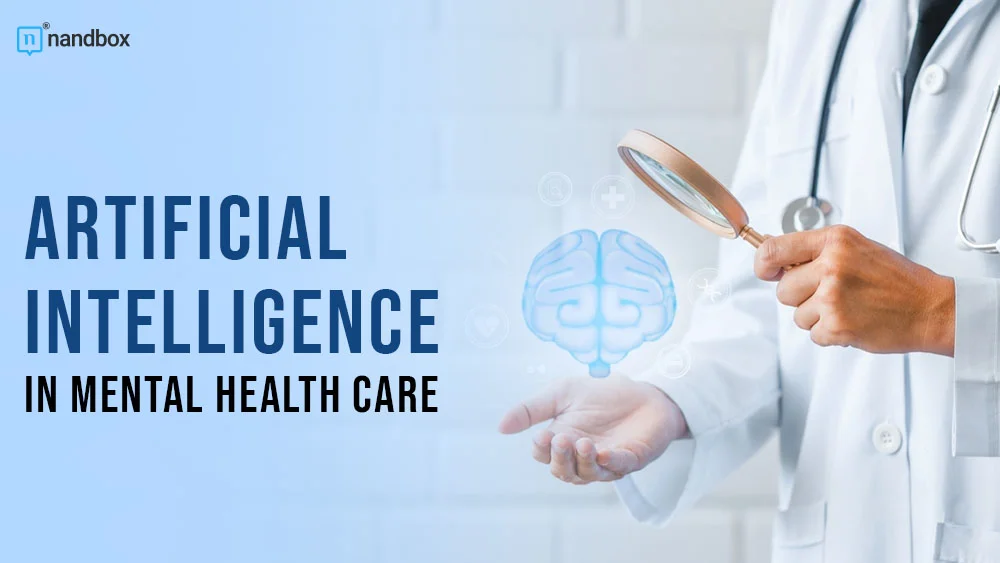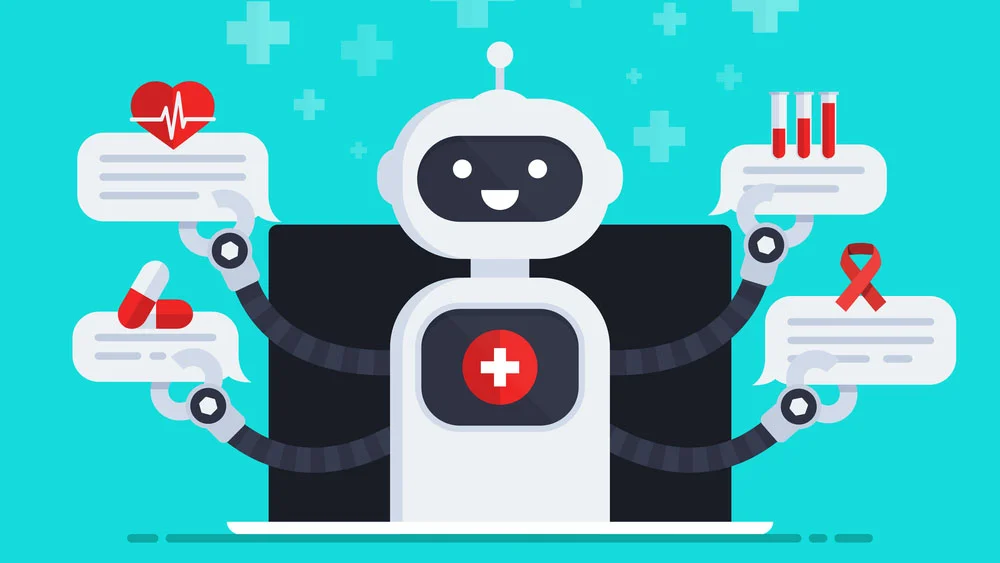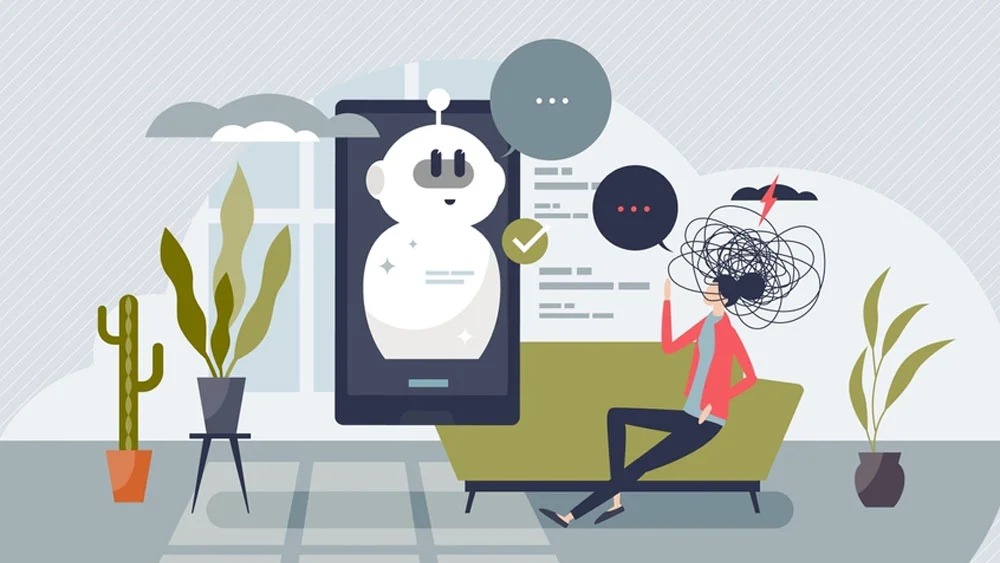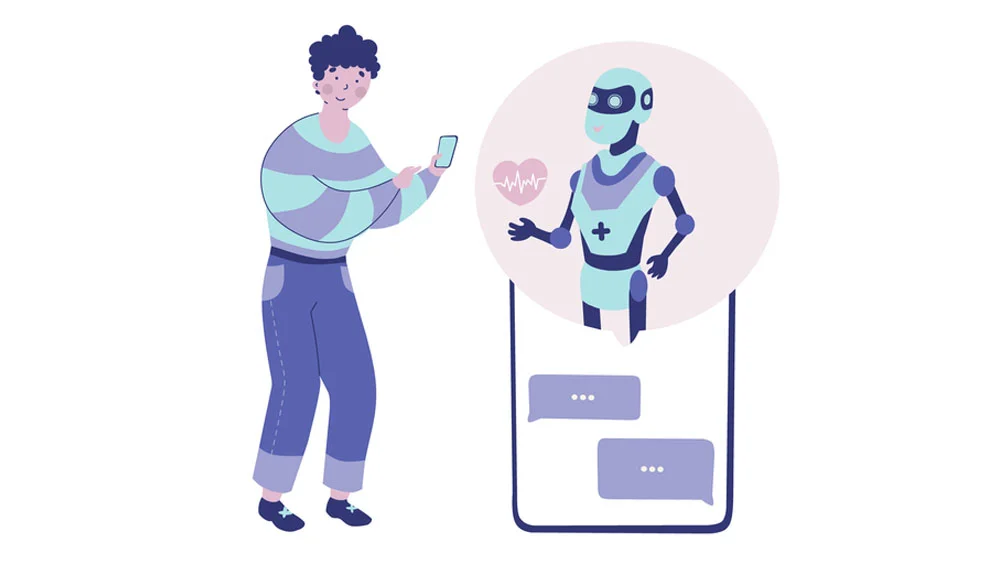There is a significant mental health crisis today. Mental Health America’s 2024 report shows that one in five adults in the US, or over 50 million people, experienced a mental illness in 2020-23. The World Health Organization also shared in March 2024 that around 280 million people worldwide, or about 3.8% of the global population, were living with depression.
This crisis is challenging to address. There has been a strong social stigma surrounding mental health issues for many years. Leveraging AI software for healthcare can help break down these barriers, making mental health support more accessible and personalized for individuals worldwide. The high cost of therapy and the lack of enough mental health professionals add to the problem.
However, recent advances in technology are beginning to provide new solutions. Innovative AI technologies are already being used in healthcare. These tools might bring about significant changes in mental health care. Mental health apps have become more popular with the growth of digital healthcare. These apps offer a more accessible and affordable way to get support. The global mental health app market, currently valued at USD 5.72 billion, is predicted to reach USD 16.50 billion by 2030. AI’s potential impact on mental health care is vast, even though it is not likely to replace traditional therapy soon.
This article will explore how AI can play a role in mental health care. It will also look at how AI is being used in treatment and therapy and what AI tools are available for these purposes.
A Brief History of AI in Mental Healthcare
The use of AI in mental healthcare began in the mid-20th century, around the time computers were first invented. This period marked the start of exploring how machines could imitate human thinking. Scientists then began considering the possibility of robots that could mimic cognitive processes. This set the groundwork for future progress in AI and mental health.
In the 1950s and 1960s, Allen Newell and Herbert A. Simon were at the forefront of this field. They focused on creating AI models that could simulate how humans solve problems. Their work introduced the concept of symbolic AI, which became a key element in recreating cognitive processes. These early efforts, while basic by today’s standards, played a main role in merging AI with psychology.
The late 1960s and early 1970s saw Joseph Weizenbaum develop one of the first AI applications for psychology. He created ELIZA, a chatbot that mimicked a Rogerian therapist. Although ELIZA’s conversations were simple, it showed the potential of technology to aid in mental health discussions.
During the 1980s, the development of expert systems started to take shape. These rule-based systems were designed to mimic human expertise. They provided diagnostic and treatment advice for various psychological issues. Although not as advanced as today’s AI, these systems marked a significant step forward in using technology in mental health.
By the late 20th century, computerized cognitive-behavioral therapy (CBT) programs emerged. These interactive programs aimed to deliver evidence-based therapy for common mental health conditions. Early versions were quite basic compared to current AI-powered tools, but they marked the beginning of making mental healthcare more accessible through technology.
With the advancements in computing power, AI’s role in mental healthcare grew rapidly in the 21st century. Modern AI applications now cover many areas. These include early detection of mental health issues, personalized treatment plans, virtual therapy sessions, advances in teletherapy, and continuous monitoring. These advancements have the potential to transform mental healthcare, making it more accessible, effective, and data-driven.
The Role of AI in Diagnosing Mental Health Conditions
Tarek El Ali, Founder of Smart Insurance Agents said, AI is now a powerful tool in identifying and predicting mental health disorders early. It uses various technologies to analyze speech, text, facial expressions, and health records. This approach is transforming the diagnosis and management of mental health. Predictive models allow for early intervention and treatment, which can greatly improve mental wellbeing.
He said, “Techniques like Natural Language Processing (NLP) can pull insights from what someone says or writes. For example, analyzing social media posts or chat logs can reveal changes in emotional states. This can help detect anxiety or depression. Tools like Cogito monitor shifts in pitch or tone during therapy sessions to alert therapists to possible concerns.”
Facial expression analysis is another AI tool used for early detection. Companies like Affectiva have developed technology to assess facial expressions. This can be useful in mental health studies. For example, research using Affectiva’s tools found facial expression patterns that might signal early depression.
AI can also analyze electronic health records (EHRs) to help diagnose mental health disorders. Machine learning algorithms review patient data, such as medical history and clinical notes, to find patterns that might indicate a mental health condition. These tools can flag at-risk patients, prompting healthcare providers to focus on mental well-being during regular check-ups.
An example of AI in mental health is the “Google Depression Screening Tool.” When someone searches for depression-related terms, the tool suggests taking the Patient Health Questionnaire-9 (PHQ-9). This questionnaire is clinically validated. The results help users know if they should seek professional help. This tool, available through Google’s search engine, has a wide reach and can encourage more people to assess their mental health.
Predictive Modeling
Tony Hendrix, Founder of Kytin Corp said, AI is also used to create predictive models for mental health. These models consider many factors, like genetics, environment, lifestyle, and social circumstances. By combining these elements, AI can predict the likelihood of someone developing a mental health issue. For instance, genetic data can reveal predispositions, while environmental factors like trauma or isolation add more accuracy.
The mental health platform “Ginger” uses predictive analytics to spot users at risk. By analyzing patterns and assessment responses, Ginger can proactively offer support to those in need. For example, if a user shows high stress, poor sleep, and social withdrawal, the predictive model might alert a mental health coach to provide help.
Jessica Shee of iboysoft.com said, Wearable technology and mobile health apps are also playing a role in predictive modeling. These tools collect data on behaviors like sleep, activity, and social interactions, which helps create accurate predictive models.
Predictive modeling identifies at-risk individuals and improves treatment outcomes. AI models can predict how someone might respond to different therapies, like counseling, medication, or lifestyle changes. This personalized approach aims to enhance recovery and reduce side effects. Predictive models can also foresee how a mental health condition might progress.
For example, IBM’s “Watson for Drug Discovery” uses AI to analyze genetic and chemical data to find potential drugs for conditions like schizophrenia and bipolar disorder. This process speeds up drug development and could lead to more effective treatments.
AI in Mental Health Treatment
Artificial intelligence is changing the way mental health care is delivered. It provides more personalized treatment options and introduces new tools like virtual therapists and chatbots. These advancements make mental health care more effective, accessible, and scalable.
Personalized Treatment Plans
AI helps create more customized treatment plans for mental health patients. Using large datasets and machine learning, AI can analyze individual needs. This includes looking at genetic predispositions, previous treatment outcomes, behavioral patterns, and real-time physiological data. This allows for more precise treatment options that fit each person’s unique situation. For instance, AI can predict how a patient might respond to certain medications based on genetic information. This can lead to better recovery rates and fewer side effects from ineffective treatments.
In the past, mental health care often used a one-size-fits-all approach. This did not always produce the best results. AI changes this by allowing for more customized interventions that align with each individual’s strengths and challenges. For example, in addiction treatment, AI can monitor a patient’s behavior and identify patterns that suggest a risk of relapse. This allows therapists to intervene early and adjust treatment strategies as needed.
AI also helps guide treatment throughout the therapy process. It constantly monitors patient progress and makes adjustments in real time. This reduces the trial-and-error method often used in mental health care, leading to better outcomes. For example, AI can modify cognitive-behavioral therapy (CBT) techniques based on how a patient responds. If a patient has perfectionist tendencies, the AI can adapt the therapy to address these traits, making CBT more effective.
Virtual Therapists and Chatbots
Elisa Bender of RevenueGeeks said, Virtual therapists and AI-powered chatbots are becoming more common in mental health care. These tools offer support around the clock, making help available whenever it’s needed. This is especially important for people in remote areas or those who can’t easily access traditional therapy. AI chatbots can provide immediate support during crises. They offer coping strategies and connect users with human therapists when necessary. They are also a discreet option, reducing the stigma often associated with seeking mental health support.
Virtual therapists and chatbots can interact with many users at once. This makes them a cost-effective solution for the growing demand for mental health care. They are especially useful for conditions like autism, where AI can use facial recognition to tailor interactions and teach emotional and social skills. AI chatbots can also provide therapeutic conversations, offering emotional support and cognitive-behavioral interventions.
AI in Therapy Delivery
Chris McDermott of ICLCP said, AI is enhancing how therapy is delivered by making sessions more effective and data-driven. It helps therapists understand patients better and make informed decisions about their care. AI can analyze emotions during teletherapy sessions by studying facial expressions, voice tone, and speech patterns. This helps therapists adjust their approach based on a patient’s emotional state. AI-driven teletherapy also makes mental health care more accessible, especially for those in underserved areas.
AI supports therapists by analyzing data from patient histories, treatment responses, and progress reports. This allows for more personalized treatments and better outcomes. AI can also suggest alternative strategies if a patient isn’t responding well to current treatments. It handles administrative tasks, like scheduling and billing, freeing therapists to focus more on their patients.
AI in Monitoring and Follow-Up
AI plays a crucial role in monitoring patients and assessing treatment outcomes. Continuous monitoring through AI-powered devices can detect early signs of relapse or changes in mental health. For example, wearable devices like smartwatches can track sleep patterns and physical activity. AI can analyze these patterns and alert healthcare providers, allowing for timely interventions.
Key Ethical Considerations for AI in Mental Healthcare
Balancing the benefits of AI with ethical concerns is essential for responsible use in mental healthcare. Privacy, data security, and bias reduction are key aspects that need attention. Protecting patient data is important. Sensitive information like medical histories and therapy records must be secure from unauthorized access. For instance, AI-based mental health platforms follow strict regulations, ensuring data privacy. Ethical AI use also involves clear guidelines on data ownership, and patients should know how their data will be used.
Maintaining the human aspect in therapy while using AI tools is another important consideration. AI should assist, not replace, the therapeutic connection between patients and therapists. For example, tools like Woebot support therapy without substituting it. This helps fill the gap between sessions while keeping human care central. Patients should be aware of AI’s role in their treatment. Transparency allows them to understand and make informed decisions. Human oversight in AI-driven monitoring ensures that care remains personal.
Bias in AI systems is a significant concern. Training data that lacks diversity can lead to unfair treatment. This can worsen disparities in mental health care. Ensuring that AI models are developed with diverse data helps avoid these issues.
AI’s growing role in mental healthcare offers new solutions for a significant global crisis. As technology advances, AI is transforming early diagnosis, personalized treatment, and virtual support. It provides innovative tools to address mental health challenges effectively.
For those interested in this field, staying updated on new developments and ethical practices is important. Embracing AI’s potential while addressing its challenges will improve mental health care accessibility and effectiveness. Stay informed about ongoing research and advancements to see how AI can enhance mental health support. Visit our website for more information.






